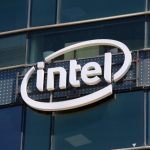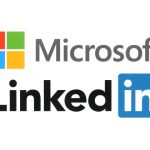Google buys Qwiklabs

Google has announced that it has acquired Qwiklabs in order to train developers how to use its cloud services.
Qwiklabs is designed as a way to give developers and IT professionals a hands-on learning platform from which they can gain experience with cloud platforms and the way in which they operate. The company launched in 2012 and its primary focus is teaching its customers how to use the Amazon Web Services (AWS) cloud.
Things to keep an eye on in the eCommerce space

ECommerce has come a long way in recent years. We’ve all heard about how online shopping was responsible for the death of the high street, but eCommerce is now about much more than the likes of Amazon and eBay. As an industry, eCommerce is expected to be worth $6.7 trillion by 2020 and now encompasses relatively recent technological developments such as mobile payments and cryptocurrencies.
The convenience offered by eCommerce is proving hugely popular with consumers and so it is not surprising that some of the tech industry’s biggest players are looking to dominate the market. However, eCommerce is becoming increasingly diverse, so there are plenty of options for businesses that are looking to make inroads, whether you specialize in retail, security, or something else.
Symantec acquires LifeLock for $2.3bn

Security firm Symantec is buying US identity theft protection services company LifeLock, Reuters has reported. The deal is worth $2.3 billion (£1.87bn), and it is claimed that this is Symantec’s way of amping up sales at its Norton cybersecurity unit.
According to the report, Norton is still profitable, but its sales are in decline for one simple reason -- mobile. Norton comes preloaded on a large number of traditional computers, but people are turning more towards mobile devices.
People don't understand how they get infected with malware

A new Kaspersky Lab report says a lot of us end up with viruses on our machines, but we just don't know how. But, in fact, we very much do. Here are the report's figures.
Almost half (42 percent) of internet users have either come across or have been targeted by malware online. A fifth of those (22 percent) have fallen victim to it, and almost a third (29 percent) have "no idea how it ended up on their device".
What you need to know about mobile payments

Mobile payments have actually been around for a few years now, but have only recently made the kind of impact that makes consumers and businesses take note. Unsurprisingly, mobile payments refer to financial transactions that are performed using a mobile device, most commonly a smartphone. As an alternative method of payment to debit cards or cash, mobile payments have gained in popularity all over the world, with businesses ranging from tech giants to independent startup all vying for market share in this fledgling industry.
As with any other new technological phenomenon, mobile payments are sure to create as many disruptions as opportunities, so it’s vital that businesses carefully manage the introduction of new payment platforms.
'BlackNurse' DDoS attack targets firewalls vulnerable to ping flood

Security researchers have discovered a new distributed denial of service (DDoS) method that requires less effort to launch large-scale attacks that can bring down servers or firewalls from a single laptop.
The new method of launching DDoS attacks called BlackNurse was discovered by researchers at the Security Operations Center of the Danish telecom operator TDC (TDC SOC). It operates by using attacks based on low volume Internet Control Message Protocol (ICMP) to overload firewalls to the point where they shut down.
What you need to know about GDPR

The concept of data protection has been around for many years, since the UK first implemented a Data Protection Act in 1984. The general data protection regulation is a piece of legislation drawn up by the European Commission to unify data protection within the EU and to govern the export of personal data beyond the EU’s boundaries.
GDPR is due to come into force across the EU in May 2018 following a two year transition period. Being a regulation rather than a directive, it doesn’t require enabling laws to be passed by member states.
Intel will complete in the AI space with its Nervana platform

Intel has announced its plans to develop artificial intelligence (AI) and the chipmaker has claimed that within the next three years it will reduce the time needed to train a deep learning model by up to 100 times.
The company's AI development will be centered around its own Intel Nervana platform that is the result of its recent acquisition of Nervana Systems. Intel purchased the deep learning startup earlier this year for over $400 million and its technology will play a key role in its efforts to pursue AI.
What you need to know about supply chain management

Supply chain management (SCM) is a vitally important business feature for many industries, having an impact on every aspect of the supply chain, from supplier to customer. Every detail of this process must be managed carefully, as even the smallest mistake could lead to delays, customer frustration and lost revenue.
What’s more, supply chain management does not only refer to the movement of physical products through the supply chain. Any data associated with these products, including invoices, schedules and delivery information, also needs to be managed appropriately to ensure that businesses have visibility and clarity across the length of the supply chain. When employed effectively, SCM can help reduce stock levels, boost transaction volume and increase revenue, which is why many businesses are now looking at software solutions in order to gain a competitive edge.
Google Cloud Platform will offer GPU options next year

Google has announced that early next year it will be adding graphics processing units (GPUs) as a service to its Cloud Platform in order to better compete with its rivals.
GPU as a service is already available on Amazon Web Services, Microsoft Azure and IBM's Bluemix, but Google's Cloud Platform will seek to differentiate itself by offering a variety of GPUs for customers to choose from. The company will allow users the option to use two AMD FirePro S9300s or either a Nvidia Tesla P100 or K80.
The paperless office is a dream

After last month’s report from AIIM, which said we were actually inching closer to a paperless office thanks to the unrelenting digitization, a new report from Danwood now says exactly the opposite.
Not only are we not moving towards the paperless office, but away from it, and worse of all -- it’s digitization’s fault. After surveying 1,000 office workers, almost half (46 percent) say they print something every day and 84 percent say this is an "important aspect of work". So how does this relate to the digital transformation?
Microsoft plays nice with the EU to buy LinkedIn

According to the European Commission, Microsoft has made commitments to appease EU antitrust regulators regarding its $26 billion acquisition of the professional social networking site LinkedIn.
The company announced its plan to acquire the site in June for $26 billion, in its largest acquisition to date. The deal would allow Microsoft access to LinkedIn's large user base and would give it an edge in providing cloud-based services -- such as Office 365 -- to businesses.
Why Facebook Workplace has no future

On October 10, Facebook debuted its long-incubated and much-anticipated platform for business: Workplace. But within days it was already clear that it wasn't going to live up to the hype. In fact, there's no way it could have.
This is not meant as a snub of Facebook. It makes perfect sense that Mark Zuckerberg would want his platform to become as popular for work as it is for fun. It has even made some initial converts. Hootsuite CEO Ryan Holmes defended Workplace -- which he has implemented at his offices -- in a Fast Company article because it represents "part of a broader wave of the consumerization of IT".
OpenAI and Microsoft team up to create 'cloud brains'

The artificial intelligence (AI) non-profit OpenAI has agreed to partner with Microsoft to develop "cloud brains" to test its experiments.
The organization, which is backed by Elon Musk, has signed an agreement that will allow it to run large-scale experiments using the company's Azure cloud services. OpenAI aims to discover more about deep learning and AI, while Microsoft will use the partnership to create new tools and technologies that use AI.
UK businesses are not keen to embrace AR

Businesses are reluctant to accept augmented reality, a new survey by ISACA has shown. The main reasons for this reserved stance is that they don’t believe the benefits are bigger than the risks of implementing the new technology.
The findings were published in ISACA’s new report, entitled IT Risk/Reward Barometer, which polled 363 UK professionals. Less than a fifth (18 percent) currently believe the benefits of AR are bigger than the risks, and 40 percent say that both organizations and consumers should be "very concerned" about the privacy risks that go with the implementation of augmented reality tech.
BetaNews, your source for breaking tech news, reviews, and in-depth reporting since 1998.
© 1998-2025 BetaNews, Inc. All Rights Reserved. About Us - Privacy Policy - Cookie Policy - Sitemap.
